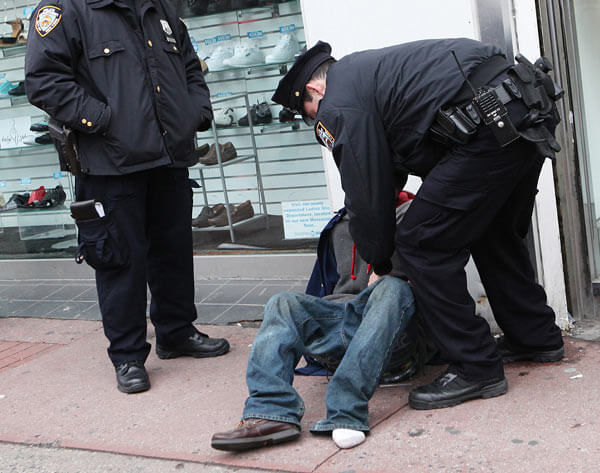By Rich Bockmann
The federal judge overseeing the broadest-reaching challenge to the NYPD’s stop-and-frisk policy Monday ruled the department’s use of those practices is unconstitutional and appointed an independent monitor to administer reforms.
Following a nine-week trial earlier this year, Judge Shira Scheindlin in Manhattan federal court ruled in a 198-page decision that the city acted with deliberate indifference through its use of proactive policing policies that targeted young black and Hispanic men.
In her decision Scheindlin wrote “the evidence at trial revealed that the NYPD has an unwritten policy of targeting ‘the right people’ for stops. In practice, the policy encourages the targeting of young black and Hispanic men based on their prevalence in local crime complaints. This is a form of racial profiling.”
“While a person’s race may be important if it fits the description of a particular crime suspect, it is impermissible to subject all members of a racially defined group to heightened police enforcement because some members of that group are criminals,” the judge added.
Scheindlin found the department’s training policies to be unclear on what constitutes a stop and the documentation officers use to record interactions to be insufficient.
The ruling said “in their zeal to defend a policy that they believe to be effective,” the city’s highest officials have “turned a blind eye to the evidence that officers are conducting stops in a racially discriminatory manner.”
The judge did not, however, call for an outright ban on the practice.
“To be very clear: I am not ordering an end to the practice of stop and frisk,” she wrote. “The purpose of the remedies addressed in this opinion is to ensure that the practice is carried out in a manner that protects the rights and liberties of all New Yorkers, while still providing much needed police protection.”
In a separate, 39-page order Scheindlin outlined a two-phase process for reforming the department.
She appointed Peter Zimroth, a former federal prosecutor and law professor, as the independent monitor who will work with the NYPD to align its policies involving training, supervision, monitoring and discipline with constitutional guidelines.
The NYPD is required to implement a trial program in which officers in one precinct in every borough will wear cameras to document their interactions with civilians. In Queens, the trial run will take place in the 103rd Precinct in Jamaica.
As the department works to implement the immediate reforms, it will work with the monitor and third-party facilitator over a six-to-nine month period on developing broader-reaching remedies.
During this time the facilitator will hold town-hall meetings in every borough to elicit community input.
Reach reporter Rich Bockmann by e-mail at rbockmann@cnglocal.com or by phone at 718-260-4574.

































